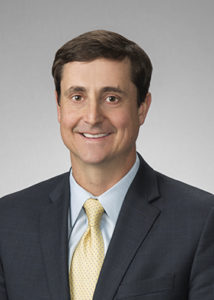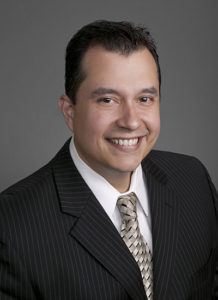The Spill Magic Saga Continues – Austin v. Kroger Is Back

Houston | San Antonio | Austin | Dallas/Fort Worth
On June 2nd, the Fifth Circuit designated its opinion in Austin v. Kroger, L.P., 2017 WL 1379453 (5th Cir. Apr. 14, 2017) for publication. In that opinion, the Fifth Circuit yet again remanded Randy Austin’s lawsuit against his former employer, Kroger Texas, L.P., to the United States District Court for the Northern District. In doing so, the Fifth Circuit (1) limited the court’s role in determining what is and is not a “necessary instrumentality”; and (2) narrowed the application of the “customary work” defense, under which an employer cannot be held liable if the injury results from performing the same character of work that employees in the plaintiff’s position have always done. The Fifth Circuit also held that the Northern District incorrectly applied a more stringent standard to Austin’s motion for reconsideration of the exclusion of Austin’s untimely expert report on causation. Under the proper, more lenient, standard the Fifth Circuit held the expert report should have been considered. The holding is a double-whammy for nonsubscribing employers. It makes it harder, as a legal matter, for nonsubscribing employers to obtain summary judgment on two critical defenses, while simultaneously making it easier for injured employees to overcome summary judgment by augmenting the summary judgment record with new evidence.
By now, nonsubscribing employers are quite familiar with facts of this case. In July 2009, Austin was on the job as an employee of Kroger at a Mesquite, Texas location when he slipped and fell while mopping a brown oily liquid from a restroom floor. Austin alleged that for this task he would normally use a product called “Spill Magic,” which Kroger’s safety manual recommended for cleaning up liquid spills. But on the date of the accident, there was no Spill Magic available. After a long and winding procedural history that involved multiple motions for summary judgment and a stop through the Texas Supreme Court, Austin’s only remaining negligence theory was that Kroger breached its duty to provide Austin with a “necessary instrumentality” (i.e. Spill Magic) for the safe performance of his job.
In April 2016, the Northern District of Texas granted summary judgment for Kroger on the remaining “necessary instrumentality” claim and denied Austin’s motion for reconsideration of the district court’s previous denial of Austin’s motion for leave to file a surreply to Kroger’s motion for summary judgment.
The district court granted summary judgment on two grounds. First, the district court ruled that Kroger had “no duty to provide an unnecessary instrumentality.” Because there was evidence that Austin had previously performed this same task safely using a dry mop (which was available on the date of the accident), the court reasoned Kroger had no duty to provide Spilll Magic. This holding is an extension of the principle, under Texas law, that an employer need only provide a reasonably safe method to perform the duties of employment, not the “best and safest” way.
The Fifth Circuit’s opinion, however, seems to call this principle into question, at least insofar as it can form the basis for summary judgment. In the Fifth Circuit’s opinion, whether the Spill Magic was a necessary instrumentality presented a “genuine issue of material fact” for the jury to decide. The Fifth Circuit opined that Kroger (and by extension the district court) placed “undue emphasis” on the fact that Austin had previously used the dry mop to clean up a “much smaller” spill. Thus, while the Fifth Circuit acknowledged that “the existence of a legal duty is a question of law for the court to decide,” the Court stopped short of making a case-specific determination of the extent of that duty. In other words, the Fifth Circuit seems to be saying that while the court can decide that there is a duty to provide necessary instrumentalities, whether a specific instrumentality is “necessary” is a fact question.
The district court also granted Kroger’s motion for summary judgment on the basis that Austin’s “injury occurred while he was performing his customary work duties.” The Fifth Circuit, however, disagreed, holding that an employer does have a duty to provide instrumentalities necessary for the safe performance of the employee’s customary work. This holding seems to limit the application of the “customary work” defense to situations where an employee is injured while performing his usual job duties, and there is no independent breach of a duty (such as the duty to furnish necessary instrumentalities).
Finally, the district court had previously denied leave to Austin to supplement its summary judgment briefing with an expert report that linked Austin’s injuries and medical expenses to the slip and fall. In the April 2016 opinion, the district court declined to reconsider that ruling. The Fifth Circuit, however, held that the district court abused its discretion in preventing Austin from introducing the expert report. The Fifth Circuit reasoned that the District Court erroneously relied upon Federal Rule of Civil Procedure 59(e) in denying reconsideration, instead of relying on the more lenient Federal Rule of Civil Procedure 54(b). Because of this abuse of discretion, the Fifth Circuit vacated that portion of the district court’s order and remanded the matter to the District Court for reconsideration of Austin’s argument under the correct Rule and standard.

